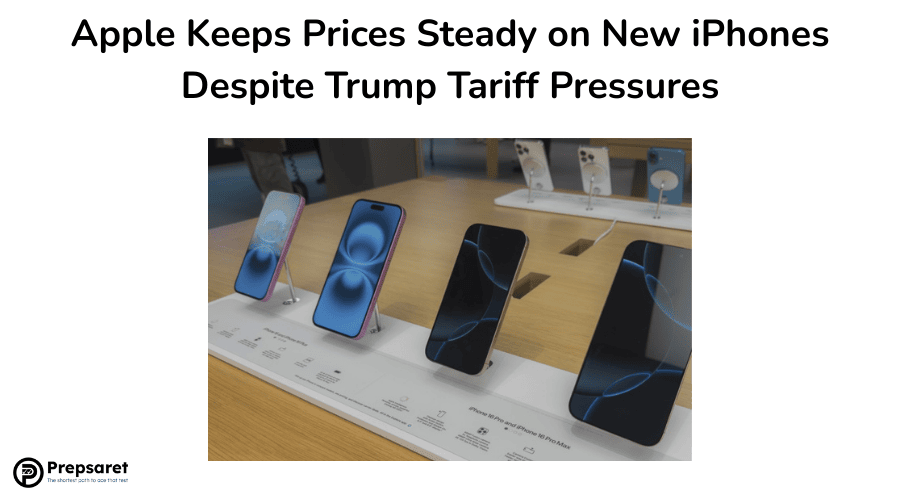Apple, opens new tab on Tuesday revealed its latest line of devices, highlighted by the introduction of the slimmer iPhone Air, while opting not to raise prices despite the financial strain of tariffs imposed under U.S. President Donald Trump.
These tariffs have already pressured the company’s bottom line.
The iPhone Air, the centerpiece of the launch, carries a high-density battery, an upgraded processor, and a price tag beginning at $999.
Wall Street observers had speculated whether Apple would pass the additional costs of tariffs onto consumers through higher pricing or by charging more for expanded storage.
Instead, the company chose to hold firm, with CEO Tim Cook calling the release “the biggest leap ever for iPhone.”
Apple also touted it as the most durable iPhone to date, equipped with the A19 Pro processor designed for improved efficiency and performance, complementing the thinner design. Rivals like Samsung already market ultra-slim smartphones, setting up direct competition.
Alongside the iPhone Air, Apple launched the iPhone 17 and iPhone 17 Pro, refreshed versions of its flagship lineup. A 256-gigabyte iPhone 17 starts at $799—the same price as the prior year’s iPhone 16 with half the storage.
The iPhone 17 Pro begins at $1,099 for 256 gigabytes, though unlike the iPhone 16 Pro, it no longer offers a lower-priced $999 option.
Apple also showcased the new AirPods Pro 3 and the latest Apple Watch, now featuring a blood pressure monitor. Notably, prices for these accessories also remain unchanged.
Related story: US Begins Process to Block Chinese-Run Labs from Electronics Testing
Balancing Competition and Consumer Costs
By resisting price hikes, Apple appears willing to absorb tariff-related losses, estimated to surpass $1 billion this quarter.
This move aims to keep pressure on Samsung (005930.KS), opens new tab, Alphabet’s, opens new tab Google, and local competitors in China. Even so, Apple shares slipped 1.6% following the announcement.
“They’re leveraging their scale to try to keep prices where they are,” said Tom Mainelli, head of IDC’s Device & Consumer Research Group.
He added, “I think Apple, like most tech vendors, are acutely aware, particularly in the U.S., that tariffs are going to impact consumers’ ability to spend in the second half of this year.”
The iPhone Air will directly rival Samsung’s Galaxy S25 Edge and may serve as Apple’s bridge toward foldable smartphones—an area where Samsung has advanced to its seventh generation.
“This new device will bring a sense of newness to the iPhone, which has remained the same for too long,” said PP Foresight analyst Paolo Pescatore.
He noted the “new and much-improved iPhone line-up looks impressive, which puts (Apple) in a strong position to cater for different segments.”
In addition, the iPhone Air incorporates new Wi-Fi and cellular chips, once supplied by Broadcom , opens new tab and Qualcomm , opens new tab.
Both suppliers’ stocks dipped after the reveal. Apple also unveiled improvements such as brighter and tougher displays, enhanced selfie cameras, and AirPods capable of real-time translation between users.
Apple confirmed that the blood pressure feature on its watches is awaiting regulatory approval but expects it to alert as many as one million users worldwide once cleared.
Read next: ANZ to Cut 3,500 Jobs Under New CEO Matos in A$560 Million Overhaul

